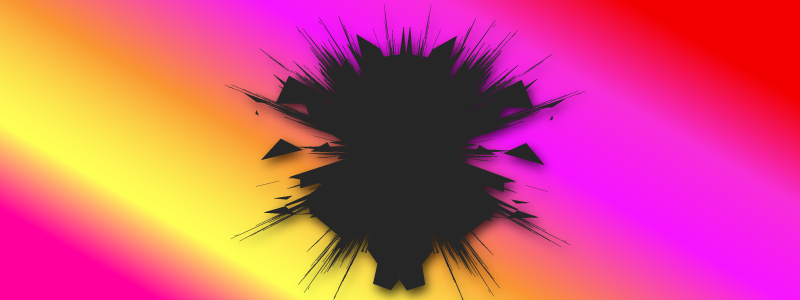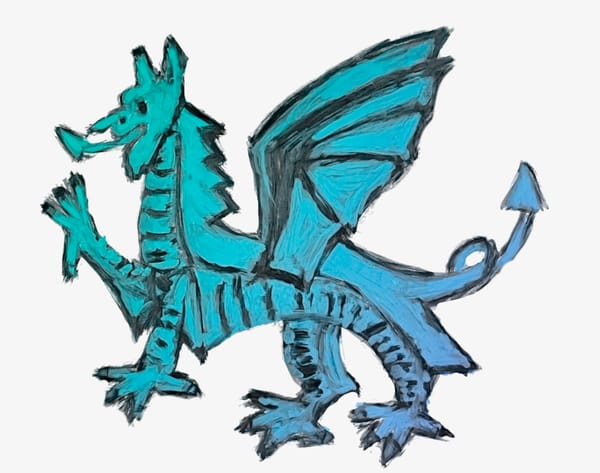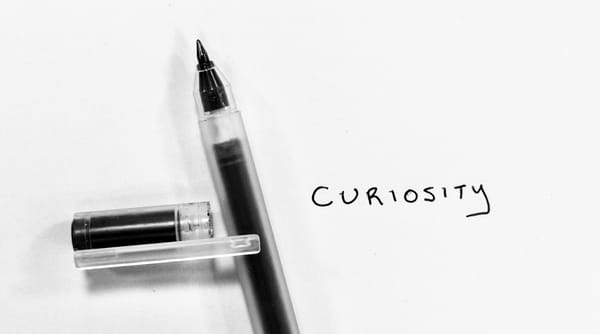Some Bizarre Questions
No answers guaranteed.

When I was researching tulips, I came across the word bizarre, seemingly as a description of the variegated or broken colors of the 16th and 17th century flowers. At the time, I didn't really think too much about it, I chalked it up to their novelty.
This week I discovered that not only was 1) that word used very specifically, but also 2) that bizarre is not the same bizarre that the Kiwi (New Zealand) music group OMC sang about in their fun chart-topping song "How Bizarre" from 1996.
Bizarre is usually used as an adjective to describe something as strange, odd, or weird, but in that case of horticulture, bizarre became a proper noun for the flowers.
Conventional Wisdom
According the usual sources, bizarre comes to English from French, which in turn borrowed the word from Italian. Beyond that, attempts at origins seem to peter out.
When I looked into early modern meaning of the Italian word, the meaning ranged from fantastical, handsome, and it translated to cerebrosus in Latin, which is something relating to the brain and cognition (and even madness), which I’m assuming is how it became associated with the fantastical. The argument is made that it comes from bizza which means tantrum, but the origin of bizza is unknown as well.
While one could apply the words fantastical or beautiful to the flowers in question, it's a stretch, and there is a much simpler explanation.
What Bizarre?
An Arabic word for flower is zahr. I would argue that that is relevant, but also not the source of the word bizarre.
- Zahr comes from the root z-h-r which means to shine or glow.
- The prefix bi- in Arabic means "with" or "in". That would make the word mean "with glow".
- The Book of Daniel uses the phrase "like the glow (z-h-r) of the firmament (rakia)", which may be referring to either sunrise or sunset, when the colors of the sky are all different layered shades of yellow, orange, pink, and red. (For the sake of the narrative, let's just call it the sunset glow.)
- Imagine you are an Italian trader at a bazaar in Morocco, and you hear a vendor yelling "lale (or sousan) bizahr!", which would translate to "red tulips with a sunset glow", which is actually a really beautiful way to describe many of multicolored tulips I've noticed this on walks this past month. As the unique identifier that sets them apart from all the other tulips is the glow, bizahr becomes an easy single word for the handsome mustachioed vendor to scream to hawk his flowers. And bizarre becomes the Latinized version of this word.
It's so simple and logical, I could have even removed step 3, which was completely superfluous. I could have also removed some of the details from step 4.
In French, this was written as bigarré, which has the same color-related meaning. Spanish borrowed that and made it abigarrado, which also means colorful.
Who Bizarre?
The Italians had also imported the Persian word bazaar, to describe this sort of market in which vendors sell wares which come from all over. I could make the argument that many languages connect the words shine and beautiful, so it makes sense why bizarre would adopt the meaning of handsome or bello.
In French, the word boutique means "shop", and a shopkeeper is a boutiquier. It is similar to apothicaire, or the owner of an apothecary.
I would suggest, that in Italian, they would have objectified the bazaar vendors as bazarro, which would quickly become bizarro. And then the xenophilic perceptions of foreign masculine beauty would follow. And in a place where the only people who have mustaches are bizarros, bizarro becomes a shortcut to talk about handsome people with mustaches.
Why Bizarre?
The problem with this explanation is that it has absolutely nothing to do with cognition, imagination, or the fantastical.
The root of the word bizzarro regarding the imagination can be traced back to the 14th century Florentine author, Giovanni Boccaccio, in his relatable human comedy The Decameron about people isolating together during a plague for ten days (or two weeks) without an internet connection or television.
It is there that we first see the word bizzarria which could be translated as imagination. Bizzarro is therefore something which could be found or created in the bizzarria.
How Bizarre?
The etymology of bizzarria is somewhat of a trip, if I understand it correctly.
People used to believe in all sorts of mythical animals, like dragons, unicorns, and phoenixes. They also used to believe in mythical minerals. Ligurium was one gemstone which was thought to be created from the solidified urine of the lynx.
There was also a multicolored stone called the bazaar, which may have thought to come from an animal source, as well. From what I can understand from the various sources I've come across, it was an antidote to a poison, unless it was a poison itself, which is a distinct possibility. I think it would make people have hallucinations, and maybe go insane.
If you "tripped" on bazaar, you would have a bizzarria, and have some bizzarro thoughts. A bad trip would similarly result in a bizza, or a tantrum.
Of course, knowning very little about this stone, I would assume that the name comes from the same root as the (reverse) ombré flowers I wrote about above.
This substance is not completely mythical or theoretical. In a very early Castillian-Arabic dictionary, I discovered a sort of spiced wine called in Arabic mubazar, which I am assuming had some quasi-hallucinogenic qualities.
Also, apparently zahr in Persian meant poison.
Which Bizarre?
There is a strange note on this etymology.
The Arabic ḡ-r-b root, which is equivalent to the Hebrew ʿ-r-b root, includes the word for sundown and evening, which is then extended to have the meaning of west (because the sun sets in the west), which then includes the words meaning Western, stranger and foreign, wonder, and ultimately weird, strange, and odd.
The Arabic z-w-r root, which has the same Hebrew cognate, has connotations of both visiting and falsifying. The Hebrew word muzar is commonly translated as strange, and the High Priest Aaron's sons were killed while trying to bring a strange fire in the Tabernacle. Indeed, the Rabbinic Hebrew term to describe worship of other religions is the generalized avodah zarah or strange worship, as opposed to earlier more specific idol worship, worship of (multiple) gods, or worship of stars.
It's just interesting that an Arabic way to convey strangeness, which is very geographically conscious, is not used, even though this etymology began by referencing the sunset. One of the ways in Hebrew to convey strangeness seems to be echoed in the word bizarre, yet it seems to have absolutely no linguistic relation.
Is a Persian bazaar called such because it includes strange wonders visiting from all over, making it a cognate with the Hebrew? Or because it is a visual cacophany, aligning it with the Arabic?
In other words, which bizarre, if either, was a bazaar? It, admittedly, would be a stretch either way.
When Bizarre?
There was a marked difference between a xenos (foreigner, guest) and an allos (other), as I've previously written about with regard to Psalm 58. Muzar (strange) is translated to allos in the Vulgate. Allos is a cognate of the word alien.
Strange is a cognate with the French étrange, from the Old French estrange, from the Latin extraneus, or "that which is on the outside".
Albert Camus' L'Étranger, with the connotation of foreigner, was initially translated as The Outsider because there was already a different foreign book translated as The Stranger published a decade earlier. Also in French, aliéné means insane.
Before the alien turned into a little green man from outer space, an alienist was the term until the 20th century to describe what we may call a protopsychiatrist. They would treat "the other" in society.
According to their original meanings, aliens and strangers were not foreigners. They were people who were different for other reasons. They were outcastes. They were bizarre.
They were strange fruit.



